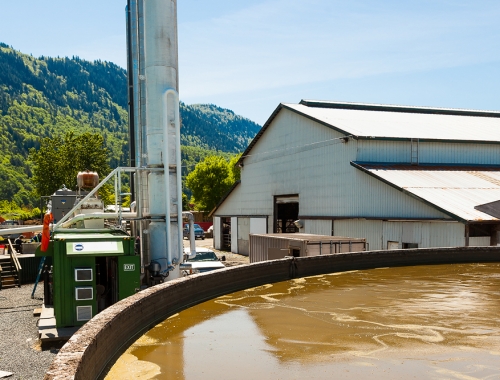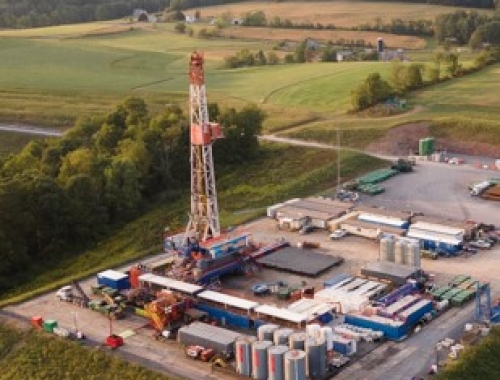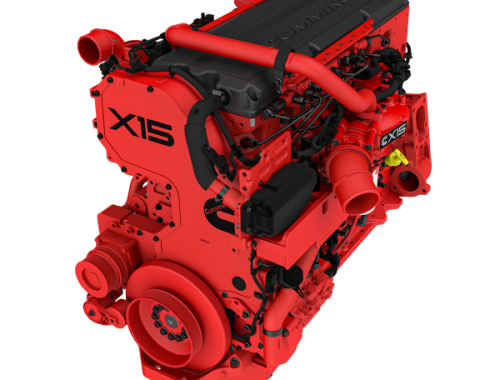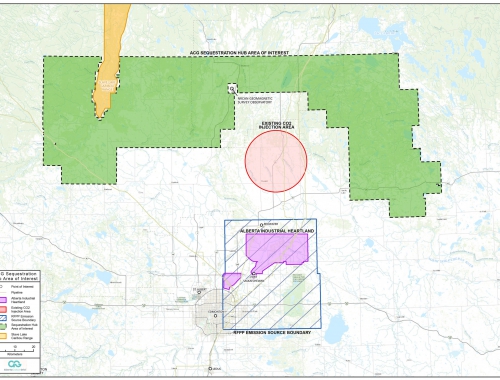Innovation means continuous improvement for NGV sector
SUMMARY
With its X15N natural gas engine, Cummins advances innovation for heavy truck transportation. [Image credit: Cummins]
By Dale LunanPOSTED IN:
Natural gas as a fuel for the heavy transport sector is certainly not new – Cummins, a world leader in both motive and stationary power generation – introduced its first natural gas engine more than 30 years ago.
Since then, Cummins – and the trucking and logistics fleets it works with – have traveled a road of continuous improvement to make natural gas engine performance more powerful, cleaner and cost effective, according to participants in a January 26 webinar presented by the 2024 International Gas Research Conference (IGRC2024), a flagship event of the International Gas Union which will be held in Banff in 2024.
The webinar, moderated by Bruce Winchester, executive director of the Canadian Natural Gas Vehicle Alliance, brought together Puneet Singh Jhawar, general manager of Cummins’ Global Spark Ignited Business and fleet representatives Kelly Hawes, CEO of ColdStar Solutions, a grocery wholesaler and distribution company operating on Vancouver Island, and Nicolas Pierri, an energy engineer with NRG Proppants, a logistics and trucking company in Argentina that delivers frac sand to well sites around that country.
“Cummins inherently has been known as a diesel engine manufacturer for the longest period of time, but we started calling ourselves a power solutions company because we understand the changing times and also understand that there are new technologies that are coming up,” Singh Jhawar said.
Now, he said, Cummins is developing transportation solutions based on natural gas, on propane, on hydrogen and even on battery electric and hybrid drive trains.
“Cummins has been in the business long enough to understand on transportation that there is not one lever or one technology that is going to solve the problem,” he said. “We need a multitude of technologies to get us there.”
Over the years, Cummins has deployed more than 100,000 natural gas engines to fleets around the world. In Canada, 25 of those engines are part of the 45-truck fleet operated by ColdStar Solutions, which first made the switch to natural gas in 2014 with 10 trucks.
Making the switch to natural gas did not come without challenges, Hawes said, and many of ColdStar’s drivers were reluctant to test the new technology.
“Cummins was fantastic working with us to train the guys, and after about two weeks nobody wanted to drive the diesel trucks,” he said.
Developing refueling infrastructure has also been a matter of continuous improvement, NRG’s Pierri noted, since while Argentina has extensive experience with natural gas-fueled vehicles, many of the country’s road-side refueling stations were low-flow, pushing refueling times to more than an hour – too long to efficiently maintain NRG’s fleet of 100 natural gas trucks.
NRG worked around that by developing in-house fueling systems based on high flow, temperature regulated systems that cut fill times to less than eight minutes.
Two of the key issues identified by fleets in their experience with natural gas engines, Singh Jhawar said, are maintenance costs and efficiency losses when compared to traditional diesel engines.
“We’ve had to up our game internally to continue to bring natural gas engines closer to diesel engines in terms of performance, fuel economy and reliability,” he said. “The engines have gotten better and better.”
Cummins hopes its newest addition to the natural gas engine platform, the X15N, will address both those concerns. A fuel agnostic engine, the 15-litre X15 comes in different configurations to support a range of fuels, including natural gas (the X15N) and hydrogen.
“Today, as it stands, the natural gas engine costs more to maintain than the diesel engine,” he said. “Our attempt with the X15N is to try to minimize the delta to maintain the vehicle.”
The X15N was initially rolled out in China in late 2021, and Cummins now hopes to deploy it in the US market this year or next, incorporating design changes developed as part of its experiences in China.







